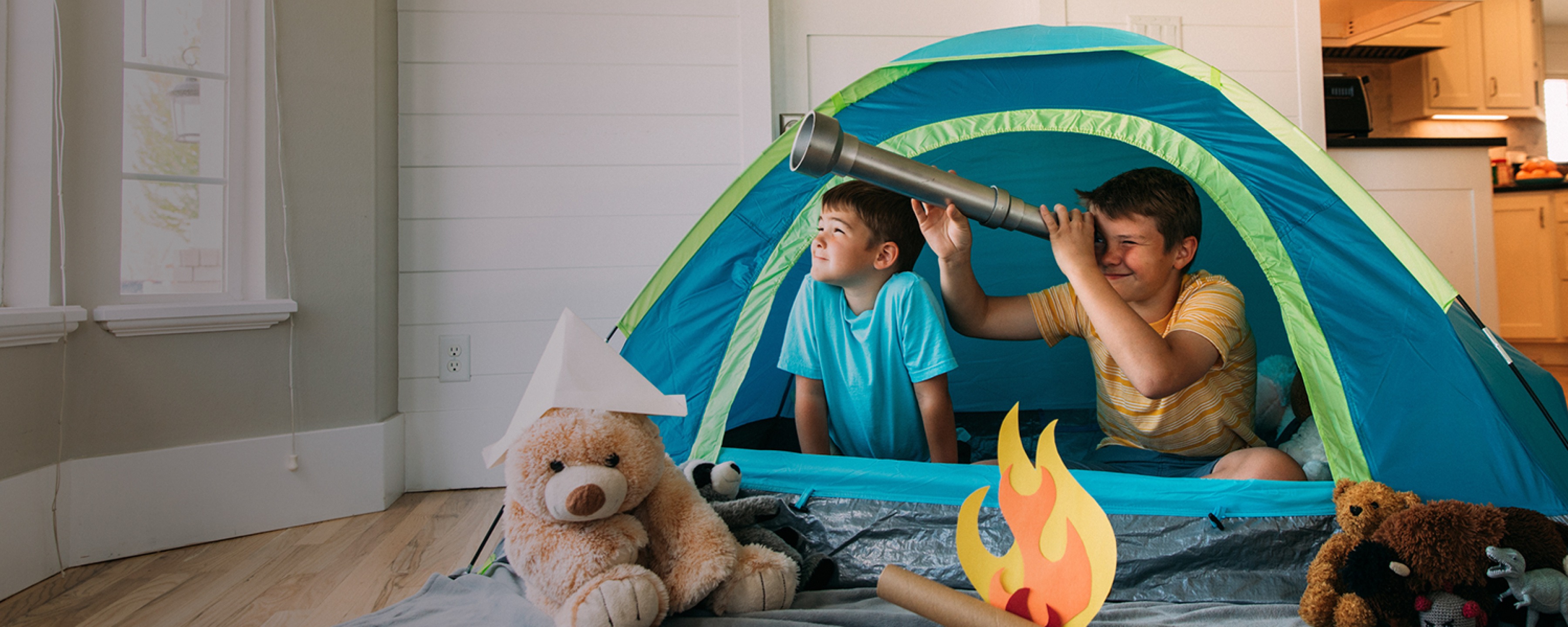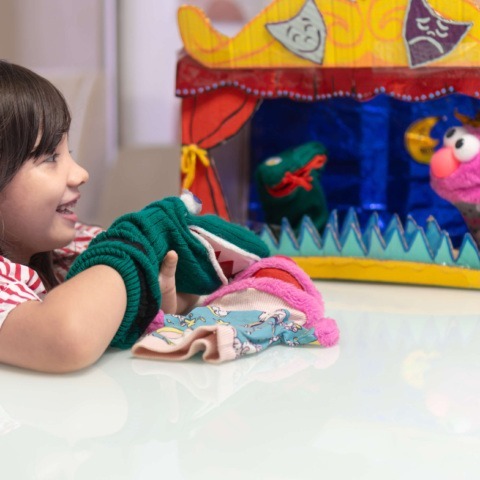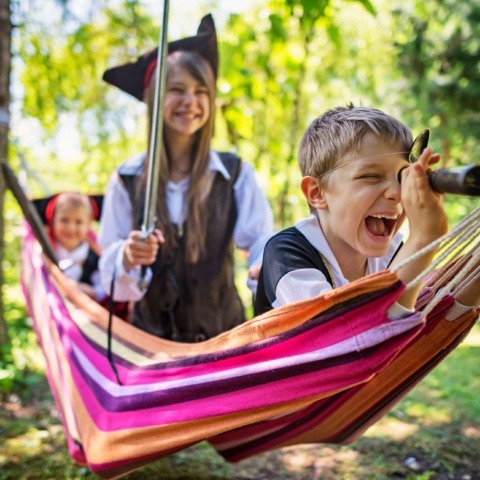Backstory
The mental health and wellbeing of children is of global public health concern.
123Play is working to change this.
Good mental health and wellbeing for children means they can live happy, healthy lives, with good relationships and greater resilience to stressors. There is growing evidence that the arts and play can facilitate confidence, self-esteem, emotional expression all of which are associated with increased health and wellbeing. Given these potential benefits, there has been a push to combine arts and health in research and practice. The World Health Organisation (WHO) has been advocating for incorporating the two to improve physical and emotional wellbeing, increase resilience, and strengthen emergency preparedness.Traditionally, research on the impacts of the arts on health and wellbeing has been explored in clinical settings, but there is growing research focusing on the benefits of engagement in the arts for the wider population and its application in community settings.
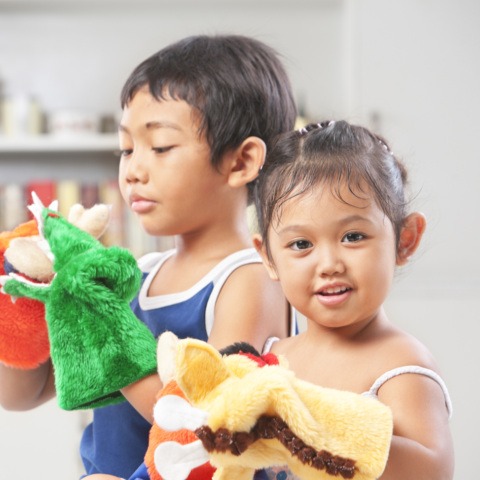
Social and emotional skills
Children’s social-emotional skills are significant building blocks for positive development, laying the foundations for good psychological well-being. Social and emotional skills are rapidly developing during preschool years, which also coincides with the peak of pretend play. Evidence shows that pretend play may enhance the promotion of social and emotional skills in young children and prevent the onset of mental health concerns. Pretend play embodies symbolic behaviour in which “one thing is playfully treated ‘as if’ it was something else”

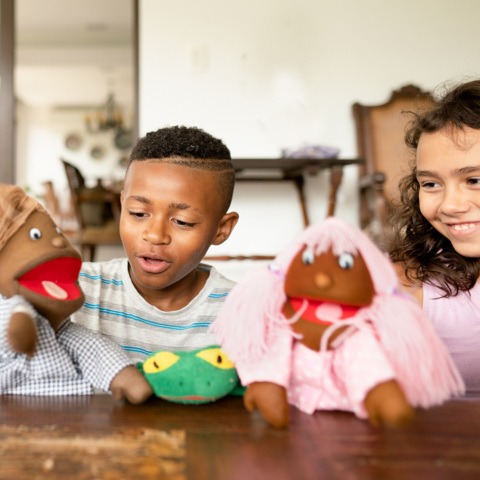
Pretend play-based interventions have taken many forms including;

Emotional expression through play
During pretend play, children can take on different roles and experiment with their and others’ behaviour, symbolise highly emotional events and express affect laden themes. Providing space for emotional expression may help with processing and regulating emotions and the behaviours that result from these emotions.
As a result, pretend play interventions have investigated the effects on aspects of social and emotional development including social competence, peer to peer interactions, emotional regulation, behavioural regulation, theory of mind, externalising behaviours and positive affect. However, intervention studies are sparse with differing results depending on the type of pretend play, level of adult guidance and individual differences of the children involved.
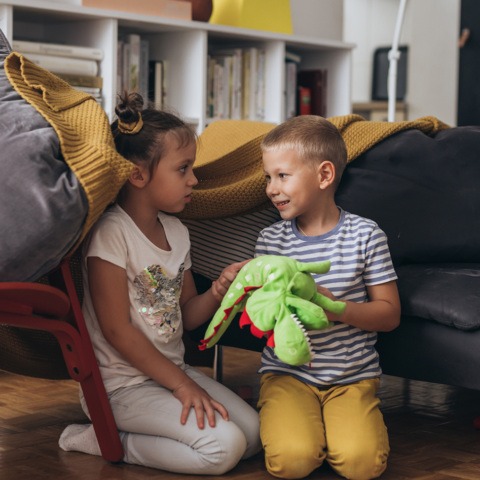
Pretend play is a natural form of creativity.
For children, creativity in daily life often takes the form of pretend play. Pretend play becomes, then, a child’s creative process. The creative process of pretend play also involves risk, specifically social risk in sharing pretend play ideas that peers may perceive as not good enough; there can be social anxiety associated with sharing ideas in a social situation and individuals may decide to “play it safe” instead. Play-based interventions for emotional difficulties are well established and play is frequently utilised in psychological treatment programs. Individual differences in social situations are also often considered in play-based interventions. However, to date play-based programs have not been utilised as part of a preventative universal curriculum.
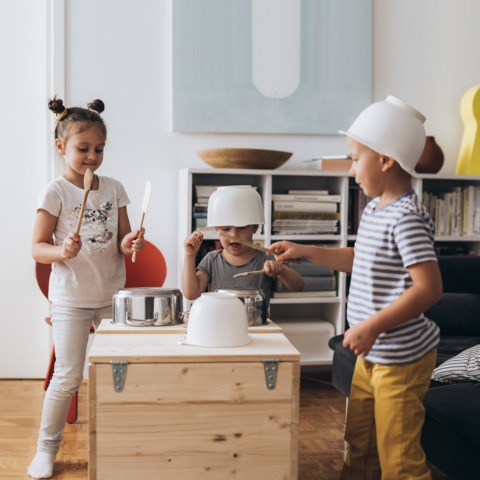
The proposition
Here we propose a novel pretend-play based intervention that is universally offered in early childhood settings which includes all carers in the child’s life. Previous pretend play interventions have only included parental involvement or early educators’ input. This intervention will incorporate the latest evidence in mental health prevention into resources for early education providers and caregivers, with the aim of enhancing the benefits of the play intervention for the child. The multi-modal combination of play and psychological intervention within this integrated program is both novel and at the forefront of child wellbeing. Considerable global momentum has been building to improve wellbeing in young children, with recognition that the foundation for good mental health begins early with social emotional capacities, including healthy social risks.
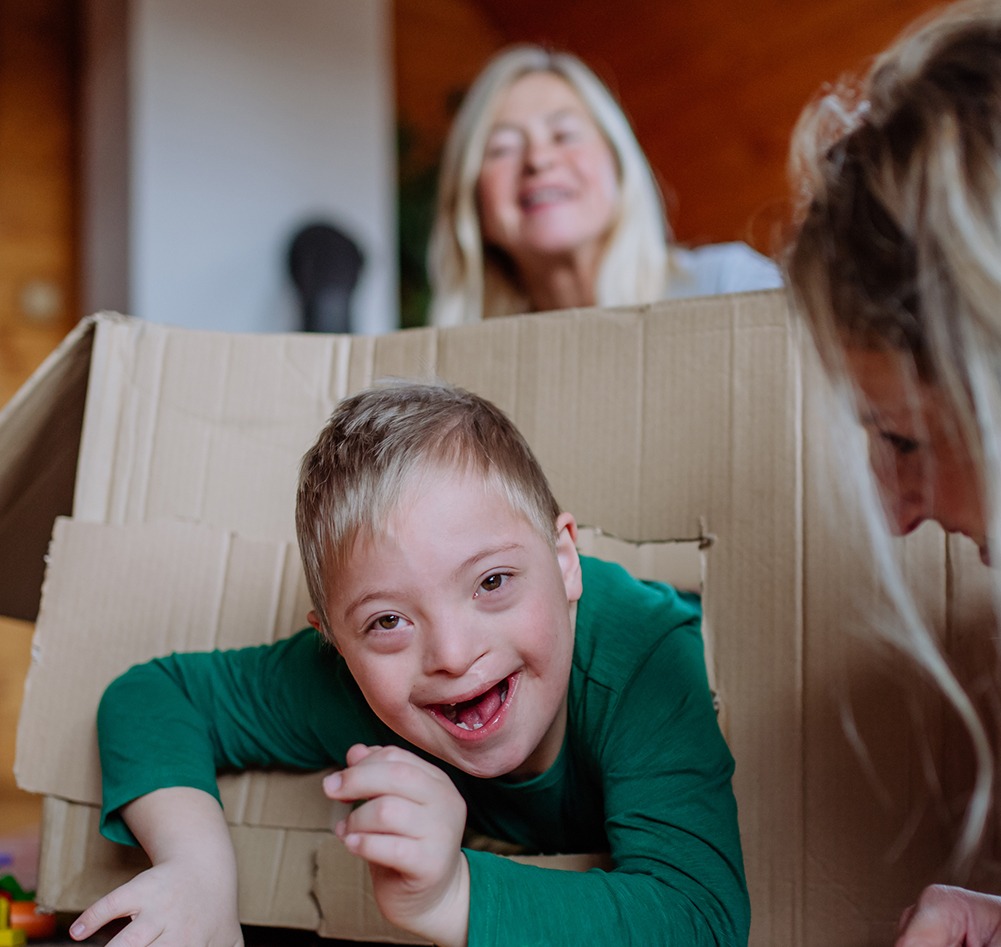
Stay connected to the players
Thanks for your interest in the project. If you have any questions about your eligibility to participate, or need some help, please register your details below and the 123 Play team will get back to you.
